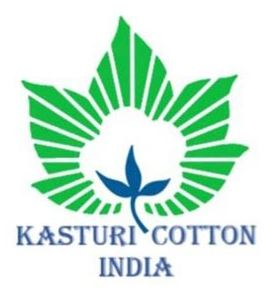Governance
Kastoori Cotton
- 10 Oct 2020
- 5 min read
Why in News
Union Minister for Textiles unveiled a brand and a logo for Indian cotton recently on the occasion of 2nd World Cotton Day on 7th October 2020.
- The branding, Kasturi Cotton, would initially be applicable to long-staple cotton that is grown in India and meets prescribed standards.
Key Points
- World Cotton Day
- Theme for World Cotton Day, 2020: Cotton: The Fibre that Moves Me
- Launched: By World Trade Organisation in 2019 on the initiative of Cotton-4 (Benin, Burkina Faso, Chad and Mali).
- In Collaboration with: United Nations Food and Agriculture Organization (FAO), the United Nations Conference on Trade and Development (UNCTAD), the International Trade Centre (ITC) and the International Cotton Advisory Committee (ICAC).
- Cotton
- Kharif Crop which requires 6 to 8 months to mature.
- Drought – resistant crop ideal for arid climates.
- Occupies 2.1% of the world’s arable land, meets 27% of the world’s textiles need.
- Temperature: Between 21-30°C.
- Rainfall: Around 50-100cm.
- Soil Type: Well-drained black cotton soil (Regur Soil) (E.g. Soil of Deccan Plateau)
- Products: fibre, oil and animal feed.
- Top Cotton Producing Countries: China > India > USA
- Top Cotton Producing States in India: Gujarat > Maharashtra > Telangana > Andhra Pradesh > Rajasthan.
- Four cultivated species of cotton: Gossypium arboreum, G.herbaceum, G.hirsutum and G.barbadense.
- Gossypium arboreum and G.herbaceum are known as old-world cotton or Asiatic cotton.
- G.hirsutum is also known as American cotton or upland cotton and G.barbadense as Egyptian cotton. These are both new world cotton species.
- Hybrid Cotton: Cotton made by crossing two parent strains that have different genetic characters. Hybrids are often spontaneously and randomly created in nature when open-pollinated plants naturally cross-pollinate with other related varieties.
- Bt Cotton: It is a genetically modified organism or genetically modified pest-resistant variety of cotton.
- Cotton in India
- Cotton is an important fibre and cash crop which plays a dominant role in the industrial and agricultural economy of India.
- India is the largest producer of cotton in the world and the third largest exporter. It is also the largest consumer of cotton in the world.
- The pest-resistant Genetically Modified (GM) Bt cotton hybrids have captured the Indian market (covering over 95% of the area under cotton) since their introduction in 2002.
- India produces about 6 million tons of cotton every year which is about 23% of the world cotton.
- India produces about 51% of the total organic cotton production of the world.
Government Initiatives for Cotton
- National Food Security Mission-Commercial Crops (NFSM-CC):
- In the 12th Five Year Plan, under the NFSM, a cropping system approach is being adopted by including commercial crops like cotton, jute and sugarcane.
- Cotton Development Programme (CDP), launched in 2014-15 is being implemented under NFSM-CC for enhancing production and productivity.
- Ministry of Textiles in collaboration with Agricultural and Processed Food Products Export Development Authority (APEDA) under the Ministry of Commerce and Industry has prescribed a certification system for organic Cotton
- Cotton Corporation of India (CCI) has developed a mobile application called “Cott-Ally” to provide the latest news on weather conditions, the crop situation and best farm practices.
- CCI has also opened 430 procurement centres in all cotton-growing states and payments are being made digitally to farmers’ accounts within 72 hours.
Cotton Corporation of India
- CCI was established in 1970 under the administrative control of the Ministry of Textiles as a Public Sector Undertaking under the Companies Act 1956.
- Headquarters: CBD Belapur, Navi Mumbai (Maharashtra)
- Role: To undertake price support operations, whenever the market prices of cotton fall below the Minimum Support Prices (MSP) announced by Govt. of India, without any quantitative limit.
Cotton Research
- The Central Institute for Cotton Research has campuses in Nagpur in Maharashtra state and Sirsa in Haryana state.
- It is a central research institute established by the Indian Council of Agricultural Research (ICAR) .
- The ICAR-Central Institute for Research on Cotton Technology is situated in Mumbai.




